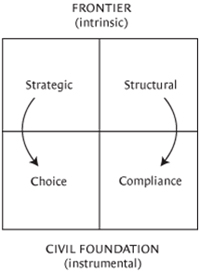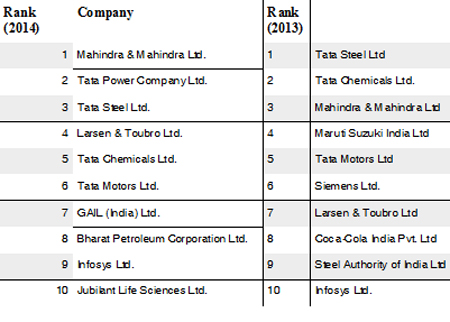Its been an interesting year. so far. In just the first six months two large companies have faced the wrath of customers, activists, regulators and shareholders. The customer is taking control. No longer just passive consumers, the customer expects a dialogue, specially when it comes to socially responsible activities. The brand is no longer what the company defines it to be but what the customers understands it to be – largely derived from their unique context and how the brand gets delivered to them.
The two key trends of reputation and disruption are shaping Indian business today. The social risk of doing business is likely to increase as reputation and responsibility converge in a world of de-manding customers. On the other hand material shortages, climate change and an ever polluted environment are driving most industries towards game-changing transformation. Renewable ener-gy sources, reuse and recycling of waste as well as technological disruption are making compa-nies rethink ‘business as usual’.
We studied about 100 top companies for their CSR performance in 2014. In 2015 we repeated the study by looking at more than 200 companies.
The dynamics of Corporate Social Responsibility in India changed dramatically with the Compa-nies Act 2013 which among other things mandated that companies spend 2% of their average net profits of the past three years on CSR. This has two key implications:
1. How does the nature of CSR activities change in response to the new stimuli?
2. What should companies really focus on while planning their CSR programmes?

We answer the first question by looking at Roger Martin’s celebrated Virtue Matrix. This was pub-lished in Harvard Business Review in 2002 and serves as a guide to creating value through CSR. Companies can engage in CSR activities in manner that increase shareholder value -instrumental activities. Or, they can undertake them because they are the right things to do – in-trinsic activities.
The civil foundation of a society is built upon by corporate actions that evolve norms, customs, conventions and laws. These can be of two types – Choice (corporations choose what act ivies they undertake but the activities come from norms, customs and conventions. Alternatively, they can simply follow the legal and compliance benchmarks. Norms and customs eventually get codified and become laws.
But then, corporations can also innovate. Innovative activities can be either strategic (doing both social good and increase shareholder value) or structural (doing only social good). Strategic actions are valuable to corporations. Structural actions tend to increase costs or reduce revenue and cannot succeed unless all other companies in the industry follow suit. Otherwise, the corpora-tion risks having a higher cost structure/ lower revenue and quickly become uncompetitive.
This is an opportunity for companies to develop new customer experiences, integrate newer tech-nologies and build a world with minimal environmental impacts. The CSR study of 2015 finds that many companies have scaled up operations in CSR and are looking at it as a priority. Mahindra and Mahindra leads the pack. Compared to the previous study it has jumped two ranks. There are four Tata group companies in the top 10 list. GAIL replaces SAIL in the public sector honours; while Bharat Petroleum joins the top ten list.. Interestingly no foreign players make it to the top 10 list. Interestingly, Jubiliant Lifesciences, a healthcare company has entered the top ten list.
The Companies Act 2013 has simply moved CSR in India from Choice to Compliance. Given that all large companies are now mandated to undertake CSR activities the only way for them differen-tiate is to innovate. Strategic CSR becomes critical for both maintaining/increasing shareholder value and doing good at the same time.
This article was taken from here.
